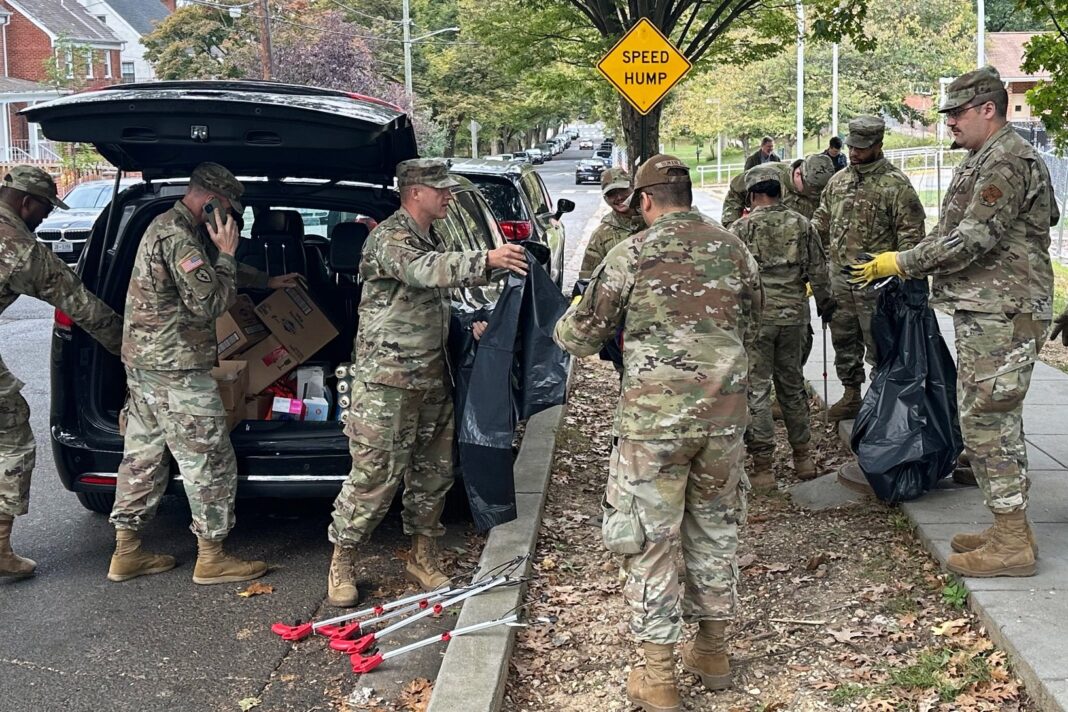National Guard Deployments in Legal Limbo: A Deep Dive into Recent Developments
No Troops in Portland for Now
Recent judicial rulings have placed the deployment of National Guard troops in Portland, Oregon, on hold for what could be several days. A temporary decision by a federal appeals court paused a previous ruling that would have allowed President Donald Trump to send 200 Oregon National Guard troops to the city, ostensibly to protect federal property amid increasing unrest.
U.S. District Judge Karin Immergut, appointed by Trump, had issued two temporary restraining orders earlier in the month. One of these orders prevented Trump from mobilizing Oregon troops to Portland, while the other barred him from deploying any Guard members from other states, including an attempt to deploy troops from California. Now, the 9th U.S. Circuit Court of Appeals has signaled that it will review these decisions, keeping the situation in a state of flux.
Legal Battles in Washington, D.C.
Simultaneously, a court in Washington, D.C., is deliberating whether to remove over 2,000 National Guard troops already present on the streets. This request comes from District of Columbia Attorney General Brian Schwalb, who is contesting an executive order signed by Trump that declared a “crime emergency,” even as violent crime statistics show a decline in the capital.
During a recent hearing, Judge Jia Cobb heard arguments on this sensitive subject but refrained from issuing an immediate ruling. The presence of these troops, combined with federal agents, raises serious constitutional questions about the militarization of cities under local governance. Attorneys for the D.C. government argue that allowing such military presence undermines the democracy and sovereignty of local governance.
West Virginia’s Controversy
West Virginia’s deployment of its National Guard has also led to a legal showdown. Civic organizations argue that Governor Patrick Morrisey exceeded his authority by sending 300 to 400 Guard members to support Trump’s efforts in D.C. Under state law, the governor’s power to deploy National Guard troops is limited to specific emergencies, such as natural disasters. The ACLU of West Virginia has voiced concerns that turning citizen-soldiers into a “roving police force” goes against legal protocols.
The state’s attorney general has pushed back, asserting that the deployment is backed by federal law. A court hearing is ongoing, with the judge extending discussions to determine whether the governor acted within his powers.
Chicago’s Uncertainty
In Chicago, the deployment of National Guard troops has been effectively blocked for now following a ruling from U.S. District Judge April Perry, who issued a temporary restraining order. The federal government has expressed a desire to take the matter to the Supreme Court for a quicker resolution, asserting the need for federal support in managing unrest. However, local officials have labeled this move as a severe overreach, emphasizing the importance of maintaining local control over policing and military presence.
Summary of Ongoing Legal Challenges
The array of overlapping lawsuits and judicial decisions regarding the National Guard’s deployment reflects broader tensions between federal authority and local governance. With legal challenges emerging in various locations, including California and Chicago, the situation remains fluid. The outcomes of these cases could set significant precedents regarding the limits of federal power and the role of the National Guard in domestic affairs.
As these developments unfold, tensions between federal and local authorities may continue to escalate, drawing considerable public attention and scrutiny. The fundamental question remains: what role should the National Guard play in maintaining order within American cities?



